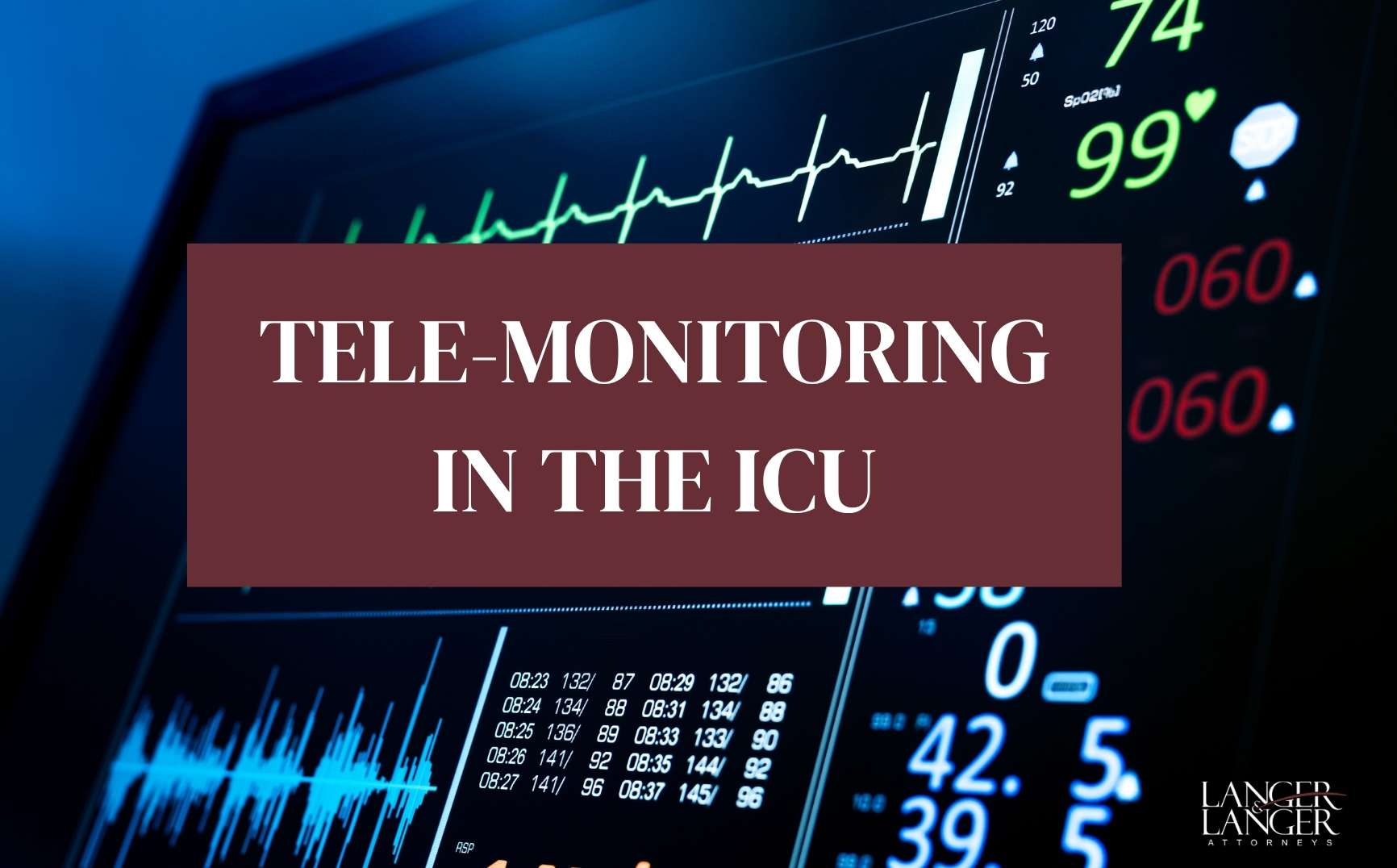
Electronic monitoring in tele-ICUs puts responsibility for patient care in the hands of off-site caregivers instead of onsite doctors. Failures in monitoring equipment or errors by off-site eICU caregivers put the health and safety of critically ill patients at risk. Caregivers whose negligence results in injury or death to a patient could be held liable for medical malpractice.
What is a Tele-ICU?
A tele-ICU, also referred to as an electronic intensive care unit (eICU), is a type of telemedicine that uses state of the art technology to monitor critically ill patients that require ICU monitoring. This type of facility can be in the same hospital of the ICU unit where a patient is getting monitored or in a remote location in another city.
With a tele-ICU, patients are monitored with video monitors, two-way cameras, microphones, and smart alarms. This hardware is connected to high-speed data lines to continuously deliver real-time patient data to tele-ICU caregivers, also referred to as intensivists. Off-Site caregivers are able to communicate with on-site caregivers and keep them informed of changes in a patient’s condition.
More than 300 hospitals in at least 40 health systems throughout 34 states use eICU services. Urban area hospitals are more likely than rural area hospitals to utilize a tele-ICU. This is because these areas often lack access to high-speed internet services.
Intended Goals of a Tele-ICU
A combination of private funding and federal and charitable grants often fund eICUs. A single eICU support center may provide care to multiple critical care patients in multiple hospital ICU units. The appeal of tele-ICUs is their technology infrastructure gives medical personnel the ability to track outcomes for patients and the medical facilities that run them.
The intended goal of tele-ICUs is to optimize clinical expertise and improve 24-hour care in ICUs. Theoretically, the concept of electronic monitoring can be an extra level of care to support patients who are critically ill and require 24-hour monitoring of important vitals like blood pressure, oxygen saturation, heart rate, and respiration.
Tele-ICUs help meet the needs of overburdened ICU units and shortages in medical staff. However, with tele-ICU’s, there is a reduction in hands-on care by medical professionals who would be more likely to notice physical signs of decline in patients.
What Can Go Wrong?
Medical errors are the third leading cause of deaths in the United States after heart disease and cancer. A recent study by Johns Hopkins University estimates that more than 250,000 people in the United States die from medical mistakes each year. However, this number is conservative compared to the estimate of 440,000 deaths suggested in an article published in the Journal of Patient Safety. Communication breakdowns are responsible for a large percentage of these deaths.
Communication breakdowns occur when doctors are not properly informed by tele-ICU staff of potential issues regarding their patients’ health. When this happens, the possibility of preventable adverse events (PAEs) increases. Because tele-ICUs rely more on technology, rather than human monitoring, quality of care can suffer, and warning signs fall through cracks when equipment failures occur.
Tele-ICUs could easily miss:
- Signs of infection after surgery or exposure to contaminated medical equipment
- Adverse reactions to medications
- Continued internal bleeding after surgery
- ICU delirium that could cause long-term cognitive problems
- Patients becoming comatose
Do Not Be Caught Off-Guard, Ask Questions
It is important for patients and their families to be proactive and ask their doctors questions regarding how their care will be handled if there is a possibility of getting hospitalized. Complications from surgeries or sudden illness could unwittingly put a patient into an ICU situation that involves eICU care. Patients and their families have the right to shop around for doctors and hospitals. Questions should be asked as to how often the doctor will be checking in on the patient, will the doctor keep the patient’s family advised on his or her condition, and whether the tele-ICU will be able to reach the doctor in an emergency.
In an emergency situation where ICU care is unexpected, families do have the right to request help from a patient advocate to make sure their loved ones are receiving the medical care and attention they deserve.
Becoming prepared in advance can help reduce the heartache and any legal wrangling a family might experience in the event of a sudden illness or injury that requires medical care. It is also important that spouses and family members make their wishes known before a medical emergency occurs. Having an advanced medical directive, living will, and designated power of attorney can help make sure the wishes of a patient are followed in an emergency ICU hospitalization.

